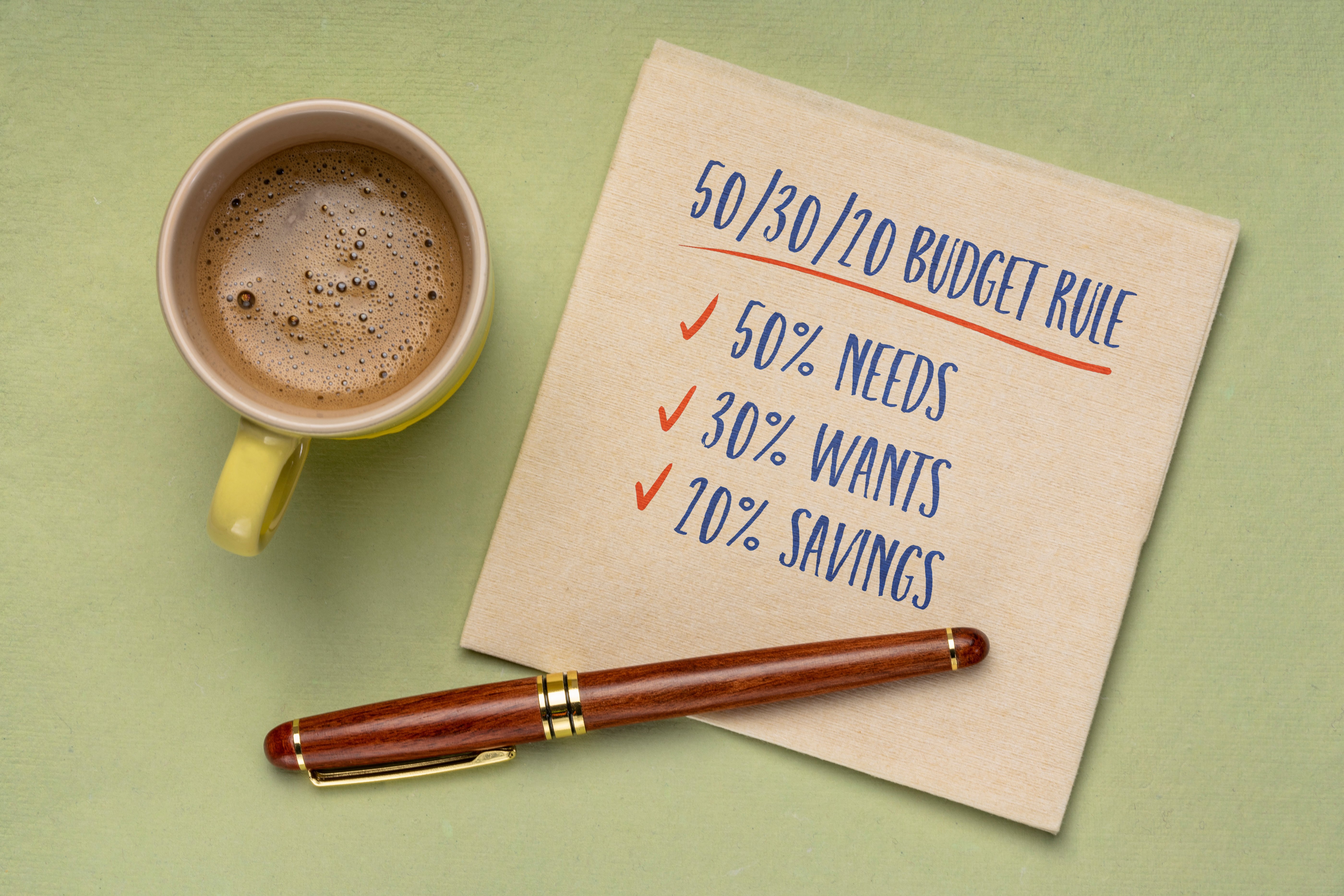How to Navigate and Recover from the Post-Holiday Financial Slowdown: A Step-by-Step Guide
Ever woken up in January with a financial hangover that makes the holiday festivities seem like a distant dream? You’re facing what experts call the...
Whether you're covering unexpected expenses, making a big purchase, or just need extra cash, our personal loans offer simple, flexible funding tailored to your needs.
Simplify your finances with a loan that combines multiple payments into one. Our consolidation loans help reduce stress and keep your budget on track.
Upgrade your living space with financing designed for renovations, repairs, or remodeling. Our home improvement loans help you enhance your home’s comfort, value, and functionality—on your terms.
Explore expert insights, financial tips, and strategic guidance from the Symple Lending team. Our insights and resource articles are your go-to source for empowering content that helps you make informed decisions on your journey to financial freedom.
Stay up-to-date with the latest press releases, media features, and major announcements from Symple Lending. This section showcases how we're making headlines and driving innovation in the lending industry.
6 min read
Breanne Neely : October 23, 2025

Table of Contents
Did you know that 63% of Americans rank money as their number one source of stress? It's not just about having enough money—it's about how we manage what we have. Financial stress can strike anyone, regardless of income level, when uncertainty and disorganization creep into our money management.
The good news is that financial stress is largely preventable with the right habits and systems in place. By taking proactive steps before anxiety takes hold, you can create a financial life that supports your well-being rather than undermines it. The key lies in organization, automation, and establishing healthy boundaries around your money.
Financial stress doesn't appear overnight—it builds up gradually when financial worries go unaddressed. This stress often stems from uncertainty about your financial health, disorganization in your accounts, or simply not knowing where your money goes each month.
Surprisingly, financial stress isn't always about having too little money. Even people with good incomes can feel anxious when their finances lack structure or predictability. When you avoid looking at your bank statements or put off organizing your bills, you're setting the stage for increased anxiety.
The effects can ripple through your entire life and impact your mental and physical health: sleep problems, constant worry, difficulty focusing, and low energy. These symptoms then make it even harder to manage your money effectively, creating a tough-to-break cycle. Common triggers include unexpected expenses, overwhelming debt, and poor financial planning.
When it comes to money worries, prevention is far better than a cure. Developing proactive financial habits gives you control over your financial situation before stress has a chance to take hold. These habits establish a buffer between you and potential money problems.
Staying organized reduces uncertainty about where your money is going. You naturally feel more secure when you know exactly what's coming in and going out. Automating your finances helps you avoid missed payments and late fees that can trigger anxiety. Setting clear financial boundaries prevents impulsive spending that often leads to regret and worry later.
Taking these proactive steps consistently is linked to lower anxiety levels and better mental health compared to constantly putting out financial fires. The good news is that these habits can be built gradually, clearing financial clutter and creating a foundation for lasting financial peace of mind.
Creating and sticking to a budget provides essential structure for your finances. A budget isn't just about restrictions—it's about clarity and control. When you know exactly where your money should go, you automatically reduce uncertainty and worry.
Tracking your income and expenses regularly is like having a financial GPS. By monitoring your spending patterns weekly, you can spot potential issues before they become serious problems. This simple habit helps you catch wasteful spending and make adjustments while there's still time.
Don't set your financial plans once and forget them. Life changes, and your financial strategy should too. Take time to revisit your financial goals every few months to ensure they still align with your current circumstances. This regular act of clearing clutter from your financial life prevents your plans from becoming outdated and keeps financial stress at bay.
Setting up autopay for your bills creates an immediate sense of relief. No more scrambling to remember due dates or worrying about late fees that can throw off your budget. When payments happen automatically, you eliminate one major source of financial anxiety.
Automatic transfers to your savings account work like magic for building financial security. Even small, regular deposits add up over time without requiring willpower or reminders. Simply set it up once, and watch your safety net grow month after month.
The real benefit of automation goes beyond convenience—it reduces your mental load. With fewer financial tasks to remember, you free up mental space and lower your chances of making mistakes. Many people find that their financial anxiety decreases significantly once they automate their recurring financial tasks. Your financial situation becomes more predictable, and predictability is a powerful antidote to money stress.
Financial boundaries create a protective framework for your financial health, preventing the stress from overspending or making impulsive purchases. These boundaries aren't restrictions—they're intentional guidelines that help you align your spending habits with what truly matters to you.
Learning to say "no" to non-essential purchases is a powerful skill. When you decline unnecessary purchases, you're actually saying "yes" to greater financial security and regaining control. This might mean skipping impulse buys or pausing before making purchases over a certain amount.
Setting personal financial limits helps you resist social pressure to spend. Whether it's declining an expensive dinner out or choosing not to participate in every gift exchange, your boundaries protect your financial well-being. Start by identifying your spending triggers—situations or emotions that lead to unplanned purchases—and develop specific responses for those moments.
Clear boundaries prevent the recurring stress that comes from constantly overextending yourself financially.
Financial decisions often start with feelings, not logic. Emotional triggers like receiving an unexpected bill, seeing a low bank account balance, or comparing yourself to others can prompt hasty financial choices you later regret.
Taking time to identify your personal triggers helps you respond thoughtfully rather than reactively. Try journaling about your feelings when financial stress hits. What exactly triggered your anxiety? Was it checking your credit card debt? Opening a bill? Scrolling through social media?
Common triggers that can derail financial wellness include:
By recognizing these patterns, you can create a pause between the trigger and your response. This small space gives you time to choose a better financial action rather than letting emotions drive your spending decisions.
Starting with achievable savings goals builds your financial confidence step by step. Instead of aiming to save thousands right away, begin with what's realistic for your situation—even $20 per paycheck creates momentum and helps prevent financial stress.
An emergency fund serves as your personal financial shock absorber. Having even $500-$1,000 set aside specifically for unexpected expenses can dramatically reduce your day-to-day money worries. When your car needs sudden repairs or a medical bill arrives, you'll have a buffer that keeps these surprises from becoming crises.
Keep your savings physically separate from your spending money. A dedicated savings account—preferably at a different bank than your checking account—creates a healthy barrier that prevents accidental spending. The money remains accessible when truly needed, but isn't easily available for impulse purchases. This separation helps maintain your financial safety net while reducing temptation.
Your thoughts about money directly affect how you handle it. A healthy money mindset doesn't just happen—it's built through consistent practice and awareness.
Adopting a growth mindset about your finances means believing you can improve your money skills with time and effort. When you face setbacks, instead of thinking "I'm bad with money," try "I'm still learning how to manage my finances." This simple shift keeps you moving forward rather than giving up when challenges arise.
Mindfulness techniques can be powerful tools against financial anxiety. Try setting aside 5-10 minutes daily for breathing exercises or meditation when money worries surface. Journaling about your spending decisions helps you spot patterns and become more aware of your personal finances and habits.
Practice self-compassion when you make money mistakes. Being kind to yourself—rather than harsh and critical—actually makes you more likely to take positive action to fix financial problems and prevent future stress.
Sometimes managing financial stress requires outside help. Professional support from financial advisors or credit counselors can provide personalized strategies when you feel overwhelmed. These financial counselors offer objective guidance and accountability that's difficult to maintain on your own.
Implementing a weekly money check-in creates a regular touchpoint with your finances. Set aside just 15-30 minutes each week to review your accounts, track progress toward financial goals, and plan for upcoming expenses. This simple routine prevents financial stress from growing into major sources of anxiety.
During your check-in:
Preventing financial stress isn't about making perfect money decisions—it's about creating systems that work for you consistently. By implementing organizational habits, automating your finances, establishing boundaries, and building small safety nets, you transform your relationship with money from one of anxiety to one of confidence.
Remember that financial wellness is a journey, not a destination. Each small step—whether it's a weekly check-in or setting up automatic savings—builds upon the last. The peace of mind that comes from having your financial house in order is worth every bit of effort, allowing you to focus on what truly matters in life without the constant burden of money worries.
Disclaimer: The information provided in this blog post is for educational and informational purposes only and should not be considered as financial, legal, investment, or tax advice. Symple Lending is not responsible for any financial outcomes resulting from following the information or ideas shared in this blog. Every individual's financial situation is unique, and we strongly encourage readers to take their own circumstances into consideration and consult with a qualified financial, legal, tax, and investment advisor before making any financial decisions. Symple Lending does not provide financial, legal, tax, or investment advice.

Ever woken up in January with a financial hangover that makes the holiday festivities seem like a distant dream? You’re facing what experts call the...

Did you know that the average American checks their bank account 8 times a week? That’s over 400 financial check-ins per year. No wonder money stress...

Ever noticed how a shaky budget can feel like trying to navigate a ship through stormy waters? Financial stress affects a staggering 77% of...

Ever wondered why some people seem effortlessly in control of their finances while others struggle paycheck to paycheck? The secret might be simpler...

Did you know that 78% of people feel more motivated to organize their personal finances during seasonal transitions? As the vibrant colors of fall...

Ever wondered why juggling multiple debts feels more like a circus act than a financial strategy? It's not just about the money; it's about the...